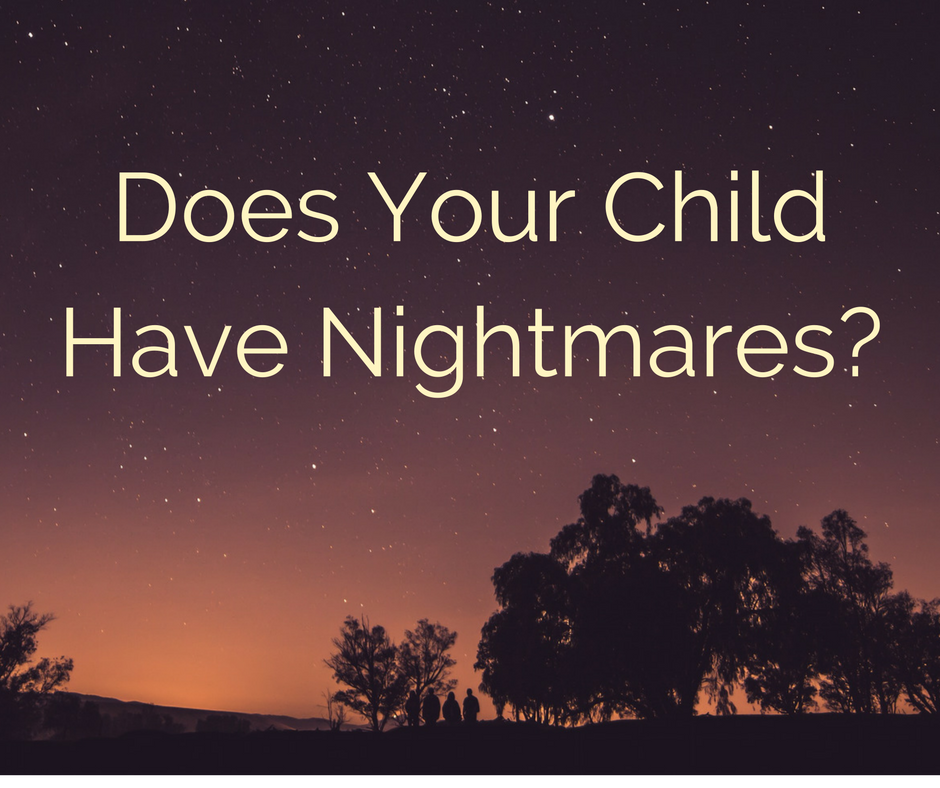It was my husband’s idea to let our four year-old daughter watch Ghostbusters. But who’s she going to call when its 4 a.m. and the movie has given her nightmares? That’s right; it’s mommy she wants for some reassurance and comfort.
WHY NIGHTMARES HAPPEN
At two years of age bad dreams can suddenly develop from TV shows children watch, books you read to them, or conversations they overhear. The frequency and severity of dreams can depend on how sensitive your child is and even major transitions like starting a new school, welcoming a new sibling or potty training can bring on a nightmare. It’s normal for a child to have a nightmare and until they are older and able to understand that a bad dream is just a bad dream and not a real life event it’s important that mom and dad are available to reassure them and help them feel safe.
Sign Up For Our Newsletter
HOW TO COPE
If your child wakes up with nightmares, the most important thing is for them to feel safe and secure. It’s okay to go into their room to provide them that comfort. Hug her and cuddle her and tell her everything is going to be okay. My suggestion would be to reassure her in her own room and try not to get into the habit of her crawling into your bed. That can be a slippery slope and a habit you may not want to start in your home.
It’s important that she knows her sleep environment is safe and secure, but I don’t recommend you start looking under her bed for monsters or getting out the monster spray. That is only proving that these monsters exist. Communication is key so lie down with her and talk about her dream, try and pinpoint the fear or anxiety to see if there are any underlying issues that she may be experiencing in her day-to-day. A great trick that I like to use with my own kids is to encourage your child to come up with a funny or happy alternative ending to the dream, which will lessen the nightmare’s power. Could the monster become your friend? Can the scary room turn into a fun playroom? If your child needs a nightlight to ease the anxiety about the dark that is okay but try to not make it a long term solution.
STOPPING NIGHTMARES BEFORE THEY HAPPEN
If frequent nightmares are becoming an issue in your home it’s best to evaluate your child’s day-to-day for triggers. Stay away from scary TV shows or books right before bed and make sure to focus on your child’s sleep hygiene – often an overlooked component in curbing nightmares. You want to avoid an overtired child at bedtime because an overtired child isn’t going to sleep restfully, which allows nightmares to creep in more easily.
Despite our best efforts, nightmares can still happen. Just keep telling your child that she’s safe, and maybe save Slimer and the gang for when she hits her teens.
NIGHT TERRORS VS. NIGHTMARES
Often confused with nightmares, night terrors are categorized as a parasomnia and are most common in children. While nightmares tend to happen during the last half of the night, night terrors occur in the beginning of the night. A night terror or sleep terror isn’t actually created by a scary dream though the experience can be quite scary for parents. A child experiencing a night terror can wake up suddenly screaming in fear, thrashing their bodies and flaying their arms, speaking out loud, and can even start sleep walking. It’s important to understand that your child won’t realize what is going on and very rarely will even remember it in the morning.
A night terror occurs when the part of the brain that is trying to go to sleep is fighting with the part of the brain that is trying to stay awake. When there is an unbalance in this state of partial arousal night terrors can occur and your child may appear awake and even speaking to you but they are generally unaware that you are there.
For the most part night terrors aren’t a cause for concern and most children will grow out of them. If you feel that your child is truly experiencing night terrors you want to:
- Make sure you are allowing your child to consistently meet their sleep needs, as an overtired child is more susceptible to display night terrors. A well-rested child has an easier time transitioning between sleep cycles and avoiding the unbalance, which can cause an episode.
- Make sure your child’s sleep environment is a safe one.
- Take note if your child may be going through a major transition that could be causing some underlying stress.










